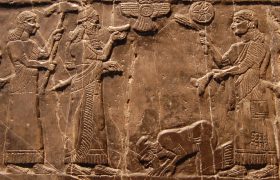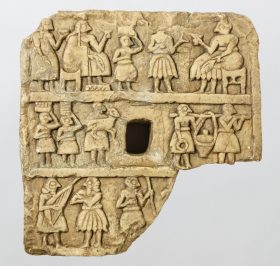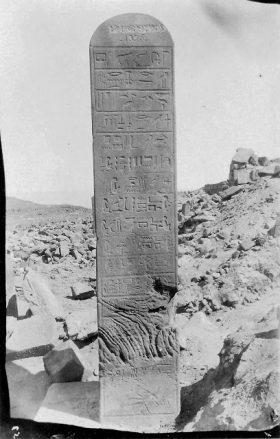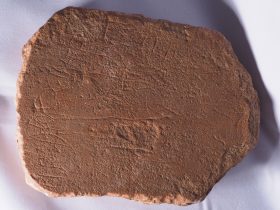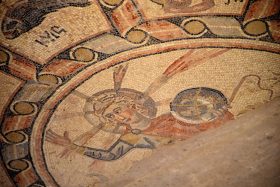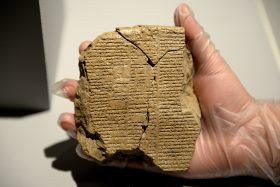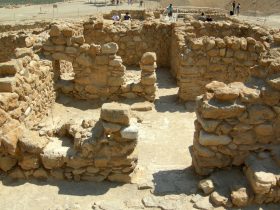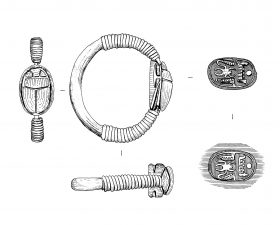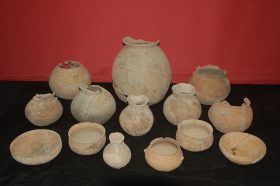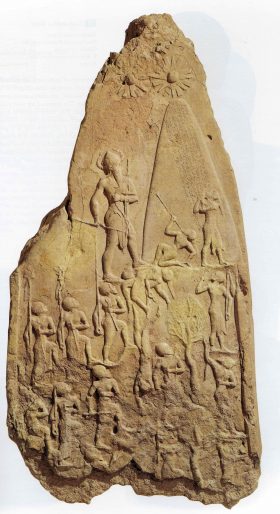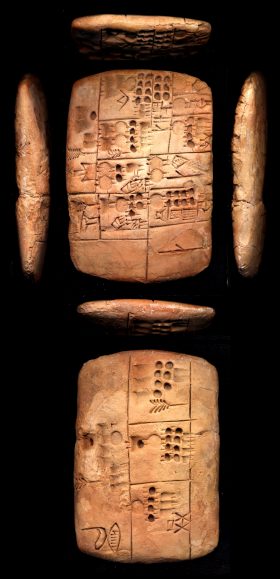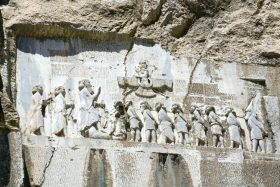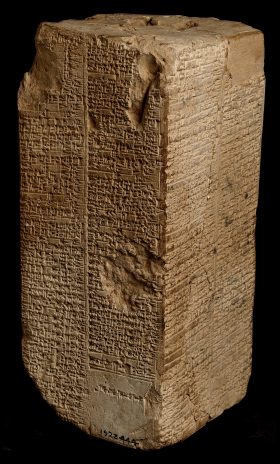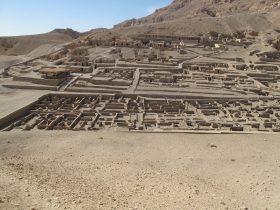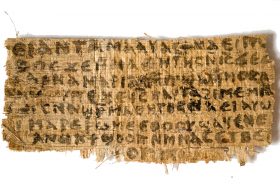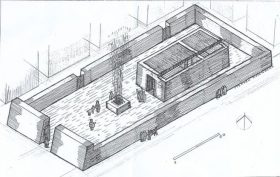Why 1 and 2 Kings?
Why were the books of 1 and 2 Kings written […]
Potent Potables of the Past: Beer and Brewing in Mesopotamia
In ancient Mesopotamia, people knew how to appreciate a good beer […]
A Response to Douglas Petrovich’s “Hebrew as the Language behind the World’s First Alphabet?”
Petrovitch’s blog does not offer any grounds for accepting his ideas. Many scholars have written […]
Hebrew as the Language behind the World’s First Alphabet?
What is the language behind the world’s first alphabet? For over 150 years, scholars have studied the world’s first alphabetic […]
Rabbinic Tales of Roman Origins
What stories do we tell about our own origins? What tales do we recount about the origins of others? What happens when our narratives […]
Do You Get to Keep What You Find?
There is one question that I am asked all the time, which has a short answer but is long on associated implications. The question is simply “Do you get to keep what you find?” […]
The Dead Sea Scrolls at Seventy
This year marks the seventieth anniversary of the discovery of the Dead Sea Scrolls. […]
Kamid el-Loz – A Short Story in 900 Words
The people of Kamid el-Loz set up urban structures three times. The first and second were built during the Middle Bronze Age II period […]
‘Joy plants’ and the earliest toasts in the Ancient Near East
Inebriation is a cross-cultural habit whose origins can be traced back to Prehistory. But humans are not the only […]
Lights on the “Dark Age”
Societal collapse has always been intriguing. For this reason, scholars have been attracted to the Early Bronze IV of the Southern Levant since the early 20th century. […]
Masculinities and Third Gender: Gendered Otherness in the Ancient Near East
Their masculine identity was considered to be ambiguous. These persons can be classified as belonging to a third gender. […]
Ask a Near Eastern Professional: How the Sumerians Got to Peru
There was indeed a “Sumerian bowl” found in the late 1950s near Lake Titicaca, at the site of Hacienda Chúa, about 75 miles north of La Paz. The dark bowl has a prominent rim and a […]
It’s Complicated: Biblical Exercise for the Theological and Ethical Imagination
Why does the Bible matter? Why do we continue to talk about, turn to, and study a diverse assortment of narratives, poems, laws and prophetic proclamations at least two millennia […]
Good Public Relations: What Persian Propaganda Tells Us About the ‘Nehemiah Memoir’
Stretching from Egypt to the Indus River, the Persian Empire was the largest empire yet seen in the ancient Near East. Typically, the Hebrew Bible depicts ancient […]
The Sumerian King List or the ‘History’ of Kingship in Early Mesopotamia
Of course, there is no such thing as a Sumerian king list. The text usually referred to as the ‘Sumerian King List’ (SKL) is a composition somewhere between a literary text and a list proper […]
The State of Matrimony without the State: New Kingdom Egyptians and Marriage
Marriage is ubiquitous in human societies. But any examination of marriage in ancient Egyptian society requires us to disengage from modern social and […]
Forging Ancient Texts
In contrast, the antiquities market is how most modern hoaxes are circulated, including forgeries of ancient texts. Alleged ancient texts are often said to come from particular archaeological sites, but there is rarely a way to verify such assertions. […]
Multi-Dimensional Yahwism: The Case of the Persian Period Judaean Community in Elephantine
Elephantine Judaeans suggests that the emergence of a Scripture-based Yahwism—the “victorious” form of Yahwism in the succeeding Hellenistic and Roman […]
Ancient Pilgrimage in the Modern World
One motivation that unites Greco-Roman pilgrimage traditions, some Jewish pilgrimage traditions, and early Christian pilgrimage is the search for authenticity. This is found in ‘proofs’ like miracles, and the way […]
“Godnapping” in the Ancient Near East
This particular removal of gods, called “godnapping” by modern scholars, is attested over a long period of Mesopotamian history, from the start of the 2nd millennium through the 5th century BCE. But how can […]
